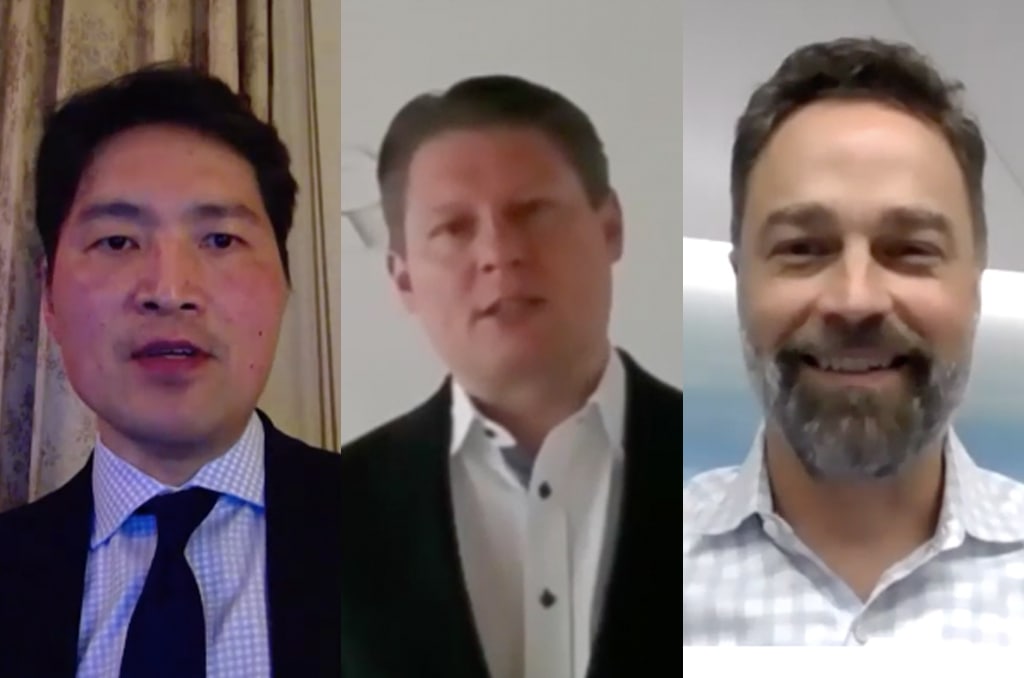Spirit, Finnair and JAL Execs on Navigating the COVID-19 Crisis
Share

Top executives from airlines around the world gathered virtually last week for the FTE APEX Post-COVID-19 Airline webinar, sharing their thoughts on sanitization, technology and the passenger experience as they prepare to ramp up flights this summer. Read on for three takeaways from interviews with Akira Mitsumasu, VP Global Marketing, Japan Airlines; Ted Christie, CEO, Spirit Airlines; and Topi Manner, CEO, Finnair.
There is no single panacea for airlines to combat the coronavirus crisis.
Japan Airlines, Spirit Airlines and Finnair – like most other airlines around the world – have implemented a series of new safety and sanitization measures in response to the coronavirus outbreak. Mitsumasu, for example, discussed JAL’s introduction of in-flight social distancing, while Christie shared that Spirit instated mandatory face coverings for passengers and crew and enhanced electrostatic cleaning procedures.
However, both agree that no single measure can address all of the issues at hand. “There will be a lot of trial and error to work out what is most feasible and practical as we emerge from COVID-19,” Mitsumasu said. “A new standard of in-flight cleanliness could be a combination of both airlines doing what we can do to the best of our ability, but also asking travelers to cooperate, by giving them disinfectant wipes to use for additional sanitation, for example.”
Pre-COVID-19 plans should not be abandoned; in fact, some are useful in the current situation.
Finnair isn’t losing sight of its pre-existing goals, including investing in the customer experience, strengthening its presence in China and further committing to sustainability, in the face of this monumental crisis. Early during the coronavirus outbreak, the airline committed to long-term carbon neutrality by 2045 and reducing its carbon footprint by 50% by the end of 2025, and last month, it announced an expanded joint venture with Juneyao Airlines. “Our philosophy is that even during the hardest of times – if you have the financial standing for it – you need to stay focused on long-term goals,” Manner said.
As for Spirit, Christie said many of its long-term goals for seamlessness and ease of travel throughout the journey, branded under its “Invest in the Guest” initiative, are more relevant now than ever before. One example is the deployment of self-bag-tag and self-bag-drop technologies at airports. “These were originally intended to make things easier, but … they are actually helping us reduce contact with our guests. We were headed in one direction for one reason and it ended up benefiting us for another.”
Overcoming passenger perceptions requires a joint effort in controlling the narrative.
Pointing to the ubiquity of high-grade HEPA filtering, vertical air flow and the flurry of new measures around cleanliness, Christie said, “It’s our sincere belief that air travel is safer today than it has ever been, and that the risk of any type of injury or of contracting any virus is extremely low.” The real issue, Christie says, is addressing a “crisis of confidence,” which he expects can be done by reminding passengers of how safe air travel really is. “My hope is that we do get to a point where we are in control of the narrative and the virus, and we all agree that air travel is not a contributing factor, and that we can show that with data.”
Integral to building a strong and trusted narrative is industry-wide collaboration, which, according to Christie, is already ongoing: “All of us triangulating on the same answers will give confidence to travelers – everyone speaking the same way about cleanliness, disinfection, clean air and the benefits of all these initiatives. The messaging is starting to coalesce.” Mitsumasu made a similar statement saying, “Collaborating to create a vision, and hence hope, is exactly what we need to do right now to get the industry back 0n its feet.”
Register for FTE APEX’s next virtual event, focusing on ancillary revenue.



